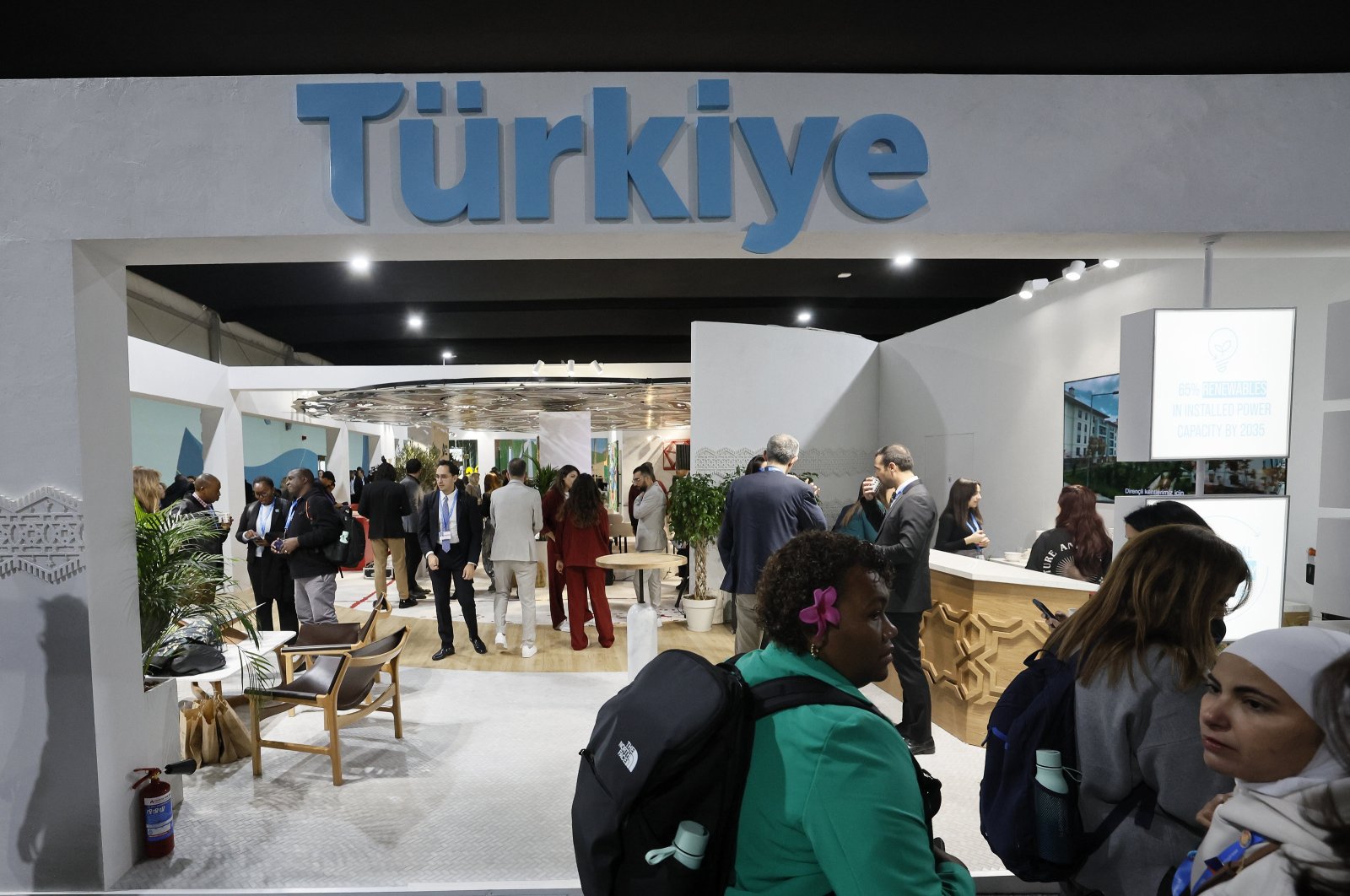Türkiye stresses importance of co-op for renewable energy goals
November 13, 2024

Türkiye needs to collaborate closely with international financial institutions to advance its renewable energy and energy efficiency goals, Energy and Natural Resources Minister Alparslan Bayraktar said on Tuesday addressing a COP29 ministerial session.
Ankara aims to reduce energy consumption by 16% by 2030, leading to a 100 million-ton reduction in emissions, Bayraktar said.
“We need to bring investment and finance for this area. And that’s why I think we need to work closely with international financial institutions to have this project viable,” Bayraktar added.
Noting that Türkiye has a “significant demand growth and high import dependency,” Bayraktar said: “We have less than three decades to achieve carbon neutrality.”
To address these challenges, Türkiye’s long-term energy strategy prioritizes five key areas, he explained.
These include, “increasing our renewable energy capacity, enhancing energy efficiency across the economy, expanding nuclear power generation, using newly emerging technologies such as hydrogen, battery storage, CCUS (Carbon Capture, Utilisation and Storage) and also investing in critical minerals and rare earth metals for our energy future.”
Noting that Türkiye has set “very important and very ambitious targets” on the renewable energy program for 2035, Bayraktar reiterated the aim to quadruple the current install capacity in renewables, wind and solar from 30 gigawatts (GW) to 120 gigawatts.
“We need to bring at least $80 billion of investment,” he noted. To achieve this, the country also focuses on energy efficiency targets.
The Energy Ministry updated the targets for solar and wind capacity expansion through its new road map in the field of renewable energy announced late last month.
The ministry is working on changes to current regulations for renewable energy investments and to encourage the private sector to participate more, Bayraktar said at the time.
This year’s COP29, which runs until Nov. 22 serves as a major platform to discuss the current climate agenda, including a new climate financing target, the New Collective Quantified Goal (NCQG).
2053 goals
Separately, Environment, Urbanization and Climate Change Minister Murat Kurum shared on Wednesday the details of plans to increase the share of renewable energy to 50% and nuclear energy to 30% of primary energy by 2053.
“We plan to increase renewable energy’s share to 50% of primary energy and nuclear to 30%, decarbonizing approximately 80% of our national energy consumption,” he noted in an address in Baku.
Türkiye has raised its renewable energy capacity to 59%, ranking fifth in Europe and 11th worldwide, according to Kurum.
Noting that Ankara sets ambitious targets for the energy sector, which accounts for the majority of emissions, he said 72% of Türkiye’s emissions come from energy, 13% from agriculture, and 3% from waste.
In industrial targets for 2053, Türkiye aims to reduce emissions by 93% in cement, 99% in iron and steel, and 75% in aluminum, he added.
The minister stated that the building sector aims for near-zero emissions by 2053, potentially preventing 2 billion tons of CO2-equivalent emissions.
Top Turkish officials visited Baku for this year’s U.N. climate conference, led by President Recep Tayyip Erdoğan and first lady Emine Erdoğan.
COP29 turning point in climate finance
Moreover, Kurum also underlined the importance of climate finance for securing financial resources for climate action.
“Facilitating access to climate finance is essential for a fairer world. We declare at every platform that we see COP29 as a turning point in climate finance,” Kurum said, emphasizing the importance of securing financial resources for climate action.
Citing World Meteorological Organization data, he said the climate-related disasters over the last 50 years resulted in more than 2 million deaths and $4.5 trillion in economic losses.
As part of other efforts on climate, Kurum touched upon the role of electric vehicles as well as agriculture efficiency.
Türkiye plans to expand its high-speed rail network to 7,000 kilometers (4,350 miles) by 2053, increasing rail’s share in logistics from 5% to 22%, according to the minister.
Kurum also noted that by 2035, Türkiye aims for 4.2 million electric vehicles with a 75% localization rate, reducing greenhouse gas emissions from road transport.
In waste management, Türkiye will phase out landfill disposal, increase recycling rates to 70%, and implement a Deposit Management System by 2025 to curb methane emissions, he stated.
“In agriculture, we will expand organic farming to 10% of farmland, optimize livestock feed, expand biogas facilities, and prioritize food security. In forestry, we will increase carbon sink capacity through conservation, green spaces, and green corridors,” Kurum added.
Agriculture efficiency
Kurum also outlined strategies to reduce urban water losses, improve irrigation efficiency, and implement smart water management.
“We will expand sustainable forest management, combat desertification, and develop climate-resilient building standards in our cities,” he said.
The long-term strategy includes cross-cutting policies to support hydrogen, carbon capture, and smart city technologies, aiming for a fair transition with new jobs and skills, according to the minister.
Kurum anticipated Türkiye’s Climate Law will be passed this year, accelerating the green transformation and aligning with the EU’s Carbon Border Adjustment Mechanism in 2026.
Türkiye’s candidacy for COP31 presidency
Kurum stressed Türkiye’s potential to turn climate challenges into opportunities, especially within vulnerable regions like the Mediterranean, Asia-Pacific and Africa.
“We see the COP31 presidency as a chance to share our experience and contribute to global climate action,” he stressed.
The minister also noted that President Erdoğan announced Ankara’s candidacy for COP31.
“Türkiye will act as a bridge between developed and developing countries, supporting climate justice, technology transfer, and financial resources for all nations.
“We pledge to adopt a fair, sustainable, inclusive, and transparent approach and hope for the support of all our friends,” he said.
Search
RECENT PRESS RELEASES
Related Post




